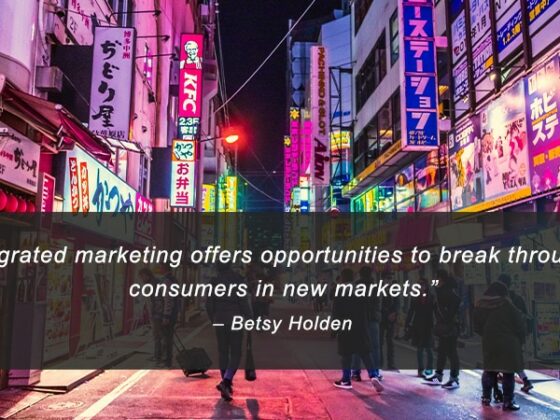Josiah:
Today we’re discussing the largest study of global guest satisfaction done this year, as well as the takeaways for your business and the way you provide hospitality.
Neil James is the Chief Operating Officer at Shiji ReviewPro, which recently released its Global Guest Satisfaction Benchmark Report. In this episode, we cover why guest satisfaction matters more than ever today, insights from the report, and what it means for you.
Neil, thanks so much for taking a little time to talk. Can you tell us a little bit about why you did this research project?
Neil:
Yeah, absolutely so at Shiji ReviewPro, we have, for the last year and a half, been running a hotel data benchmark report, and the idea here was that quite a few years back, we used to run a report for luxury hotels in the market where we would show which were the top luxury hotels and chains around the globe based on guest satisfaction and online reputation scores. And recently post-pandemic specifically , we realized that there was an awful lot of data out there and it was very difficult for hoteliers to understand. Okay, these new indexes that I’ve got, these new scores that I’ve got, how does that fit within the market? You know, am I doing well, am I not? I’m looking at my competitors but I don’t know if, as a general benchmark, this is good or not right. So we obviously are a data company and we’ve been in the market for over 12 years and you know this is a great opportunity to basically give something back to the market and give this benchmark, analyze the data. It helps us, obviously, when we’re speaking to our clients and give them a bit of consultancy related to how they perform against the competitors, but also against the industry in general, and, more than anything, for hoteliers to be able to have an understanding on how are things changing and where should their focus be when it comes to looking at guest satisfaction and the guest experience and also the employee experience, right? So how can they change the perception of the guests and staff at the property?
Josiah:
We certainly have a unique perspective, working with tens of thousands of hotels around the world and then having data that analyzes the feedback for many more. But I think, before we get into the findings of this study, I have to ask you why does guest satisfaction matter? Isn’t it hospitality just about building cool hotels and making a lot of money doing that? You know, why should we care about guest satisfaction?
Neil:
So I mean, yeah, hospitality is about building cool hotels, for definite, I’m making a lot of money out of it, but in order to do that, you clearly need to have customers, and customers that are willing to come back, or if they’re not willing to come back, then at the very least they’re willing to share their experience and make sure the other guests are willing to pop at your hotel, right. And so the key thing here is making sure that your guests know what to expect when they come to your property, to know that they connect with the brand or with your concept specifically, and that, when they get there, those expectations are met. And this is what enables you you’re not going to buy a Fiat than expected to perform like a Lamborghini, right, it’s just not going to be the case, and it’s the same thing when it comes to hotels. Your guests will have different expectations, depend on the kind of vacation they take in or the kind of business trip that they’re going on, and therefore that guest experience needs to be set. Then people need to understand what is the guest journey that they’re actually building for the guests pre-during and post-day so that then they can make sure that they’re obviously delivering on that promise.
Josiah:
Yeah, it’s a really good explanation and I couldn’t agree more because guess satisfaction almost kicks off this flywheel right of advocacy – people coming back and it just makes your business become better and better. It allows you, even with the concept that you might have, if you, to tweak elements of that and to improve and ultimately the output is higher financial performance. I’m glad we’re talking about this because we’re coming off of obviously a wild couple of years with so much change happening in hospitality, and so it’s good to go back and see okay, what, what are we seeing from guess? What are they asking for? What are the changes? Let’s get into some of the things that you found in this study. As you kind of look across all the data and all the ways you analyze that, what are some things that that stood out to you in this data set?
Neil:
Yeah, so, just before I go into the detail and just sort of that, the people are listening, are aware. So when we do this report, we’re actually looking at data of a 9,500 hotels Around the globe and those are over three, four and five star categories and it’s six regions across the globe. So we tried to cut the good breath. I think the the first thing to mention is obviously the key indicator that that we measure is an indicator called the Global Review Index, which is, you know, the proprietary index of ReviewPro, and this is the main index that enables us to identify how the online reputation of that hotel is is performing all group or region. So, for quarter one, twenty twenty three, what we basically saw was it was an increase in the GRI. It was small in comparison to the Q1 2022, but there was an increase that was driven mainly by the five-star category and also driven by hotels in Asia Pacific, and so that’s where we saw a big part of the increase. We see that there are review volume continues to increase compared to Q1 2022, but we’re still about 10 percent below the pre-pandemic level. Yeah, and what we are actually seeing is that, although the review volume continues to grow, it started to plop up. Yeah, we started to get to that point and I think that makes sense because you know we’re at a point now where many people traveling, you know there’s a lot of motivation to go around the globe again. However, having said that, we also know that because rates are so high, it doesn’t necessarily mean the hotels are full right, because we’re revenue managing our properties and we’re trying to keep the cost down as well to make it more efficient. So, in which case you would expect that not necessarily that review volume would be as high as 2019, but we’re not far away from it, which I think is it’s. Interestingly, the largest increase in reviews was in Asia Pacific, where we saw a 69.1% growth versus the same period last year. Yeah, so this is obviously seeing that you know people have Most likely started to get more comfortable doing long-haul flights again and being able to go back over to that region Right, which and when we were just coming out, pandemic people were traveling, for a lot of it was still staycation, right, so I think that’s a very interesting piece to see there. Also, not surprised by the fact that Booking.com continues to dominate the online review volume when it comes to the sources. That’s followed with my Google and Trip Advisor
Josiah:
If I could just kneel on that point. I think to really a point of the global review index being a really interesting way to understand guest satisfaction overall, because I think when I started in the business, TripAdvisor was far and away the market leader had felt it’s been really interesting to see the rise of OTAs. I think that’s not necessarily going to surprise anybody that’s listening to this, but I think an important point to underscore is looking at guest satisfaction holistically and as more so many people choose to shop on these websites, they’re looking at the feedback in context of booking.com or Expedia or Google too, which is really fascinating to see feedback spread across these different platforms.
Neil:
Absolutely. I think it was probably more segmentation in the past, obviously, and, as we say, it’s booking and Google have grown so much, then that obviously has an impact. In other words, we know that guests, for example, in China, will be looking at reviews in C-Trip or Clipcom and therefore, while the others Google for example nobody would be looking at reviews over there. The importance of being able to understand if you’re looking to attract guests from that particular market, then obviously you need to be able to do something in order to be able to increase those reviews.
Josiah:
Then you need to track them. You also need to do something. I think, as in also encourage feedback on the audience these sites that are important to these core audiences. Yeah, totally.
Neil:
I think interestingly as well. While booking.com and Google continue to be really dominant in the market, it’s interesting to see from conversations that we’ve had with TripAdvisor that TripAdvisor is still a super, super important channel when people are actually looking before booking, Specifically when it comes to leisure market not only, but specifically when it comes to leisure market because people want more context, they want to understand the experience they’re having. There’s a lot more content on TripAdvisor. When it comes to textual content, Then that still continues to be a key part.
Josiah:
Yeah, I think yeah, just on that point. It’s interesting. I did some travel this summer throughout Europe. When I had a good stay, I would ask the manager where can I leave a good review? What’s most useful? To the last one? They were saying go to TripAdvisor, go to TripAdvisor Again. It’s to our point, though there’s no one perfect solution here. Tripadvisor is built an amazing business. They also have great organic search rankings. You’re searching in the name of your hotel and reviews. Tripadvisor often comes at the top of that. You got to participate in that. But also booking clearly is important. It all matters.
Neil:
This is why management response is so important as well across the various channels, because, at the end of the day, people are going to go to all of these channels and they’re going to make their decisions about what they’re doing depending on what they see online. At the end of the day, it’s super, super key to not only know what your reputation looks like, but also to be setting expectations, to get through management response so that they know what to expect when they come there. They know why you need to get a taxi to get from the airport to the hotel. Over Jeff, it’s super important, I think so. One of the other things that was interesting not surprising, but definitely interesting from the data is, of the top five department indexes, the value index was the one that had the lowest score and for us, on the index that we have, that was 83.3%. And I say it’s not surprising because we all know, obviously, adr is a place that in most cases, for most of our clients, most hoteliers, is something that we’ve never seen and because of that, guests are paying that much more. They’re getting surprised when they go online to look at rates and they’re shopping because they’re paying so much more. When they get there. They expect a lot more. They expect a great experience, and I think this is one of those key things that we’ve been involved with with many of our clients is what can be done in order to make sure that the guests bills that they get in section of value for the money that they paid. And those could be simple little things that are the welcome how technology is used, how you’re reducing the cues because you’re automating a lot of the stuff, you’re making things readily available, information and so on, but that piece is so important because of the fact that they’re paying so much more of these things.
Josiah:
I wonder if we could talk just a little bit more about that, because one thing I appreciate about learning from you, Neil, is just the very deep operational expertise that you have as a former hotel operator general manager and I’ll link to the story that we did before in the show notes. People should check that out. But, as you think, operationally, how do I make guests feel like they’re getting good value? You mentioned kind of making it smooth and frictionless. Is there anything else you’ve observed from the hotel groups that you work with, moving interesting things to make a higher feeling of value for these higher rates that we’re paying?
Neil:
Yeah, it’s interesting. So I think there’s a couple of things. I was at a hotel group conference recently and one of the things they talked about was how obviously loyalty and their loyalty program was so, so important. But they also said that one of the things a hotel group must not forget is that there are a lot of loyal customers that continue to pull through the OTAs. You might not know them because each time it’s different profile, but those guests should be, for example, every time they go to booking.com looking for Hilton or looking for Rannison or looking whoever. So in that case, you’re at a point where you also need to understand these guests are as important, really, as those loyalty guests. Of course, we want to keep those loyalty guests there. That part of our loyalty scheme had been coming back and always booking it, but we also have to bear in mind that the experience of everybody else is just as important, because they could be booking our properties globally. In addition, I’ve also seen is that there are hotels and hotel chains that obviously are looking for ways to be able to improve the guest experience through technology, which is key, because technology is obviously not there to replace the humans, but it’s there in order to be able to give our team members more time when dealing with those guests. That really needs help. The key is that you and I talked about this in our interview a while back, where the key of the implementation is so important how you implement it, but not only how you implement it, how you promote it. So, for example, if you’re about to stay at a hotel and you get an invite to check in online, well, when I get to the hotel and I’ve checked in online and then I get to the desk and they still have to put me into the system, they still have to cut my room key, and they don’t tell me of any benefit that I’ve received from doing that, then clearly I don’t have much want or need to continue with that process moving forward, even though, as travelers, we’re used to doing this day in, day out with the airlines right, but we just haven’t got to that point of okay, hey, check in online, beat the cues, go directly to the bar, pick up your room key from there and they’ll be welcome drink waiting for you, right? Something that tells me okay, this makes sense, right, because at the end of the day, you want your guests to engage with that.
Josiah:
Yeah, well, it’s funny you mentioned that, because it almost seems that a bad implementation of technology is worse than none at all. I had to experience a couple of weeks ago like that, where I went through the process and then I showed up at the hotel and I was jet-legged and I was trying to tape on an iPad small iPad keyboard which had a different keyboard configuration than normal, so it was about three pages that felt like 50 fields. Then the host was just sitting there and watching me and I’m like this is worse than if I was just waiting for you to take care of everything. So if you’re, going to implement tech, do it smart. I wonder if we could talk just a bit more about this, because you mentioned technology and thinking about guest experience design as a way to improve values. You talked about reducing the queue time, thinking about a better check-in experience. Is there any other part of the hotel operation where you’ve seen technology present some opportunity or something that people can be thinking about? Absolutely yeah.
Neil:
So I was in the UK a while back with some of our clients there. One of the specific examples I gave is that within Sheetude with Hue Pro, we have a platform called Guest Communications. This is the ability to proactively communicate with your guests across multiple channels ie, whatsapp, wechat, sms, etc. And we were looking at their data because we were trying to forecast their guest experience or the summer period. So what’s going to happen with your guest experience June, july and August and how to deal with that? So we were looking at the historic data and one of the key things that came up because there was a heat wave in the UK last year in the summer obviously was air-conditioned. Air-conditioned in the UK, compared to other countries, is not the best. I’m not labeling that for every single hotel. I just think they see listening, but we know that that’s the case and in those cases there’s not much that you can do. But when I was speaking to this hotel group, I said, okay, just imagine you’re at one of those days where you’re hit in the top temperatures that have never been seen. So just imagine the ability to send up a WhatsApp message those guests that you have the numbers and say, wow, can you believe this hot temperature we’ve got. We never get this. We’ve hit a record today. But just to help cool you down, pass by reception and we have an ice cream complimentary hotel waiting for you here. Just something so simple and small that has very little cost but can really change that experience. All of a sudden you go from oh my God, it’s roasting in here. I can’t get the air to somebody coming down, hit in the ice cream, maybe having a discussion with the team member and turning that experience around. And while technology is not the thing that’s done, every single point of that is the enabler in order to be able to kind of influence that experience.
Josiah:
Well, it’s so cool to hear that. I’m just obsessed with hearing stories of these small, low-cost amenities that make a big difference. And there’s something you know, I Even if you’re staying at a luxury hotel, it’s interesting how powerful something that is very cheap and it’s just given. But it’s also the empathy behind that, as you pointed out it’s recognizing. Our guests are probably feeling hot right now. Let’s be creative, make them feel special, but you it also requires having this infrastructure behind the scenes. I think to what you’re alluding to. You have to have the communication channels. You need to have these paths of communicating with the guests, and something that you and I have talked about before is also maximizing the touch points, or opportunity to listen to the guests, and so you mentioned earlier. You know, overall online review volume is down if you have a lot less guests but you’re charging more. But maybe that’s an opportunity to make sure that you have a strong process in place for guest satisfaction surveys. Um, as well, you know more mobile real-time feedback, because you need to think about okay, maybe you have less guests, but we still need to learn a lot about our operation. So what are other ways to listen?
Neil:
We have less guests, but probably Employee to guest number is more or less the same as would have been anyway. Right, so we have less guests, but we have less team members as well. Right, because we’re trying to apply the technology and that’s one of the things. You know, the, the touch points are super key at you know, messaging, like we just talked about what’s up, etc. The ability for guests to be able to communicate to you across multiple channels. You know, in real time, yes, you need to have people or a chat, but that can help to respond to a certain amount of that. Right, a lot of our clients. Sorry, but then in the chat bar that enables you to you know the system to respond to maybe 80%, 85% of those queries, and then only you know those 15% then need to be responded by a team member. So that obviously already introduces an element of Automation guest service, its instant, its multilingual Right. So already it is already a lot of benefits to that. But also one of the things and and this is where we talk about implementation being so important it’s like in-state surveys are one of the things that we speak to our clients alone about, right, okay, don’t wait until they’ve left a hotel to implement a survey, ask them after the first night or Couple of hours after arrival, through these various channels is everything okay at the moment? You need anything right and Then you’ve got an opportunity to turn, you know, to satisfy around Shower being broken, the toilet not working, the bed not being comfortable, or you know, I expected a room overlooking the swimming pool and I haven’t had it. It’s actually well, you know. You’ve got an opportunity to deal with that while the guest is there and make sure you turn that you’re in surround. But the key there is that the operation needs to be able to Respond to that right, because at the moment that you are going out and asking guests, okay, is there anything that we can do with you know delivering on that and not respond into them on that, then you’re actually negatively impacting this day. So the technology can really really help as long as it’s been implemented and the process of Responding, escalation etc. Has obviously been behind them.
Josiah:
I love that, neil. I feel like every time we talk I learned so much. I appreciate you sharing your expertise. Give a link to the story we did earlier in the show notes, because people need to know more about your story, but also we’ll link to that report you and your team have put together. It’s a treasure trove of data and insights on what’s going on in hospitality today. So thanks so much for taking a little bit of time today to walk us through that and share your perspective, and I hope we have a chance to chat again soon. No problem, thank you, just say.





